
The Next Generation of Advancement Professionals
For early-career advancement professionals, relationships can build career foundations and unlock opportunities. During the past 50 years, generations of advancement professionals have found these relationships through CASE.
The Graduate Trainee Program is one of several CASE opportunities designed to help early-career professionals develop skills for a career in advancement. Launched by CASE’s Europe office in 2009, the GTP places recent graduates at voluntary CASE member institutions for a yearlong work placement. Throughout the year, graduate trainees are supported by CASE through training, conferences, and mentorship. The program started with funding from the U.K. government’s Matched Funding Scheme for Higher Education, which aimed to boost fundraising activity within the sector.
Three objectives guided the program, says Lyndsay Lewis, who the CASE Europe team brought on as a talent management consultant. CASE looked to bring in top talent and both publicize and professionalize higher education fundraising as a career path.
Over time, CASE developed more structure to the program, including mentoring trainees through reviewing goals and objectives and talking through their challenges, says Lewis, who acted as liaison between the Europe-based host institutions, trainees, and CASE.
“I wanted the trainees to walk away with genuine commitment and motivation to make a difference to the sector … to feel inspired and excited, and confident that they can move into a role that’s going to be fulfilling,” says Lewis.
CASE expanded the GTP to the U.S. and Asia-Pacific regions, giving newcomers to the profession across the globe the opportunity to participate.
Meet six individuals—both GTP participants and the advancement professions who worked with them during the program—who built relationships that opened doors and helped them thrive in their careers.
Two Trainees Make a Perfect Match
Georgia Willmot remembers meeting Jackie Yip, who would be her interim manager for her first months in the GTP, on her first day at Cardiff University.
“I had never been to Cardiff before, and I thought, ‘Oh, it’s August. It’s going to be a nice day.’ I show up and it starts pouring rain. Jackie lent me an umbrella and [joked] to invest in some good waterproofs. … I could tell straight away that she was passionate about her work, and that was inspiring to see as my first impression. [I remember] thinking, ‘Oh, I’m in an environment of people that really care about what they’re doing.”
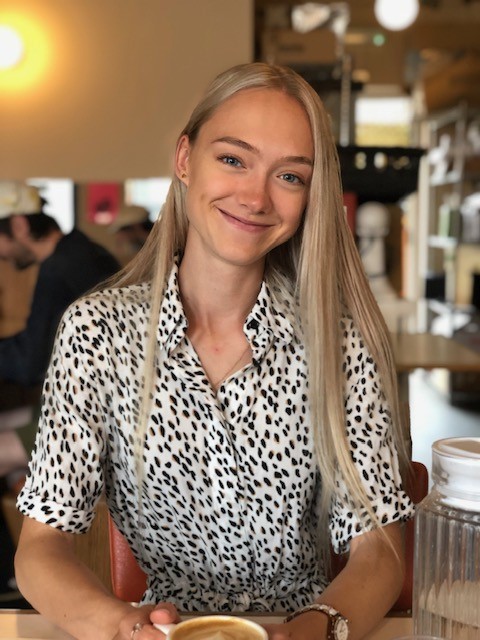
Georgia Willmot
Development Officer
Cardiff University, Wales, U.K.
Yip had also been a trainee at Cardiff from 2020 to 2021 and was a Development Officer at the Wales university during Willmot’s time as a trainee from 2022 to 2023. The pair formed a quick friendship.
Yip, who studied music as an undergraduate at Cardiff, first met and spoke with the university’s donors while working at the student union, which taught her the value of philanthropy and stewardship.
The experience connected her with a development director who recommended she apply for the GTP, of which Cardiff was a host institution. Once a trainee, Yip was placed as a fundraiser in her own right.
“At Cardiff, you manage your own pool of prospects, you sort your own meetings, manage your own stewardship plans. That was a hands-on, in-depth [experience of] being dropped basically straight into the midst of the fundraising environment,” says Yip.
She supplemented her fundraising training by networking with her graduate trainee cohort, who regularly met virtually to exchange ideas, share knowledge, and support one another. By networking with her peers at different institutions, Yip learned how other universities tackled fundraising and gained perspective on other advancement disciplines.
Willmot, who studied mathematics at university, discovered philanthropy through volunteering with local charities post-graduation.
“I was out on the street with a bucket, and I found that I liked talking to people about cause and telling those stories. And I thought, ‘Oh, wow! Is there, maybe, a career in this?’” she says.
Willmot then came across the GTP on a job search website. Once a trainee, she started her time in the program by attending the CASE Europe Annual Conference.
“It was evident straight away that [advancement] was a very supportive industry,” she says. “[CEAC] exposed me to the breadth of what happens in an advancement office—that it’s more than just face-to-face fundraising.”
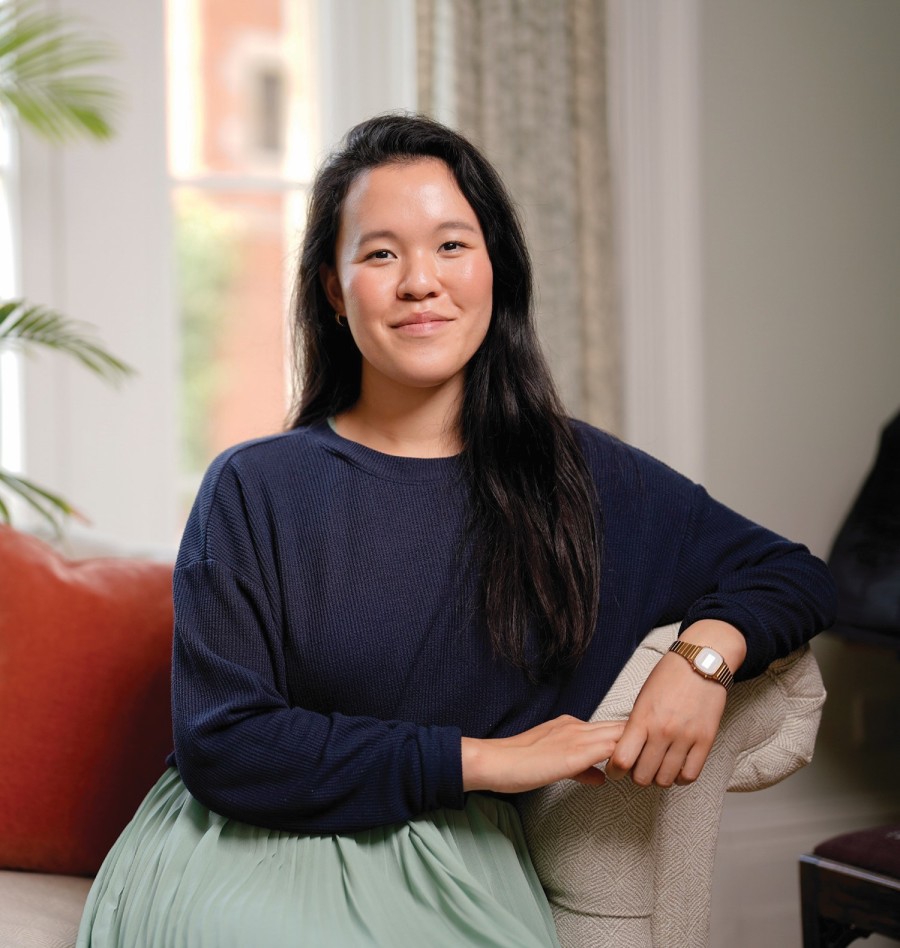
Jackie Yip
Regular Giving and Alumni Relations Executive
Somerville College, University of Oxford, U.K.
Because Yip had recently completed the GTP herself, she was aware of the challenges Willmot might face as a newcomer to Cardiff and the profession. This gave the pair a real connection but also allowed Yip to be a fantastic source of support, says Willmot.
“It helped me to make sure that I got the most out of the year. If I hadn’t had Jackie, I probably would have been reserved. … But she is a very ambitious person. She taught me to go for it if I think something’s worth doing,” says Willmot. “I remember Jackie on my very first day saying, ‘Resilience is a key skill—you’re going to be doing meetings straight away and you’re going to be getting nos. But that’s okay.’ It made me a bit aware that that’s something I’d need to bring to this role and maybe improve, as well.”
“Georgia was so good at persevering,” says Yip. “It’s not easy interacting with so many people and having a door shut in your face occasionally. She was so good at uplifting us, saying, ‘It’s not a door shut in your face at all—it’s an opportunity that you’ve planted the seed for the future.’”
Willmot is now a Development Officer on the Leadership Giving Team at Cardiff. The university is currently hosting another trainee, for whom Willmot says she wants to show the same support she received from Yip.
“Jackie’s made me think about the figure I want to be to them,” says Willmot.
Yip is now a Regular Giving and Alumni Relations Executive at Somerville College, University of Oxford, U.K. The support the GTP facilitates helps strengthen the profession, she says.
“I feel like, from the outside, this career isn’t taken as seriously as it should be. Having an enforced framework and internship structure in place legitimizes that. A mentor can eliminate misconceptions and [say], ‘This is what we do. This is the backbone of why we do it and why we’re passionate about it, and why there’s so many of us in this industry,’” says Yip. “It helps build up the reputation and understanding of higher education philanthropy and development.”
Bridging Cultures West to East
Marcus Ward, former Chief Philanthropy Officer at Monash University, had the opportunity to mentor and work with several graduate trainees during his near decade at the Melbourne, Australia, institution. This included Ziqiao Chen, who was a trainee from 2018 to 2019.
Ward was involved in Chen’s recruitment and sat in on his final panel interview to join Monash’s team. Prior to his interview, Chen discovered on LinkedIn that he and Ward had both been members of AIESEC, an international student organization, as undergraduates. Chen had served as vice president on his university’s AIESEC committee.
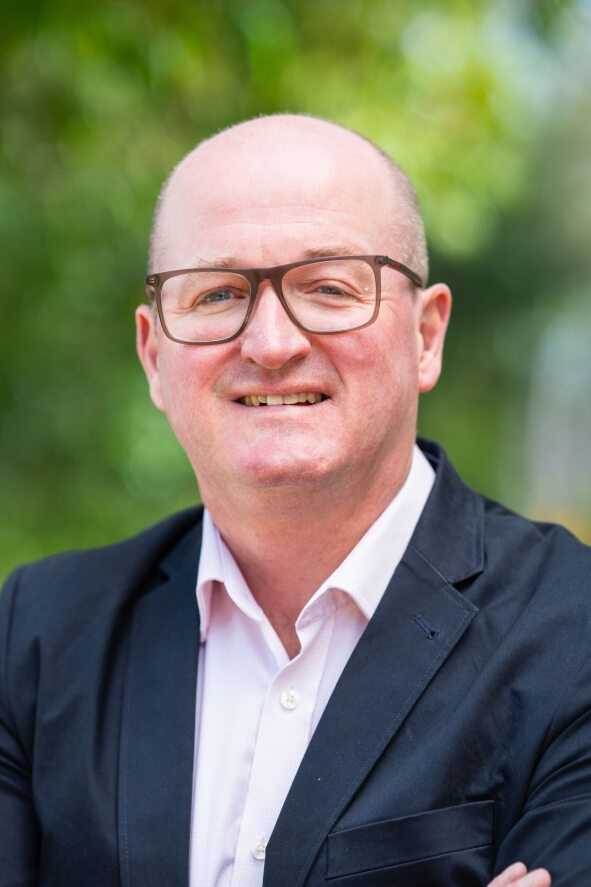
Marcus Ward
Vice President (Advancement)
Griffith University, Queensland, Australia
“[During the interview] Marcus had a very serious face on and wasn’t smiling much, but I used a lot of examples from the experiences I had with the organization. I could see a small smile slowly leading up on Marcus’s face, and as the interview progressed, he was like, ‘Do you know what? I was the president [on my university’s committee] in the ’90s,’” says Chen.
Ward—who completed his undergraduate degree in Ireland before working at the Prince’s Trust in London and eventually in advancement in Ireland—says it might seem like his and Chen’s backgrounds are very different. But once the two of them were working together, he’d often share with donors that they’d been part of the same student organization.
Chen, who studied commerce as an undergraduate, originally saw his path leading to consulting, but a more personal interest led him to advancement.
“My passion has always been about bridging culture gaps and bringing together the West and East. I’m Chinese and I grew up in Australia. What struck me was [the graduate trainee] role is about connecting people and fostering equality through higher education. That’s what got me to apply,” says Chen.
During his time as a trainee, Chen had regular check-ins with Ward. Seven months into the program, when Ward asked him what more he wanted to get out of his role, Chen says he asked to take on more work with senior leaders and high-level donors.
This conversation with Ward resulted in Chen supporting Monash’s Vice President (Advancement) on an overseas trip to Beijing, Shanghai, and Hong Kong, in which he acted as both a guide and translator. The trip’s success also led to Chen’s monthlong placement at Nanyang Technological University in Singapore, which he describes as pivotal.
“There’s no better way to immerse yourself and to learn than being in a location itself. It gave me a good comparison to fundraising in Australia and helped me to position myself when Monash did eventually give me a role in Asia. The network I was able to build through CASE helped me to stay in touch with the region,” says Chen.
Chen says he grew closer with Ward during the COVID-19 pandemic, during which he felt isolated and unmotivated without in-person meetings or international travel.
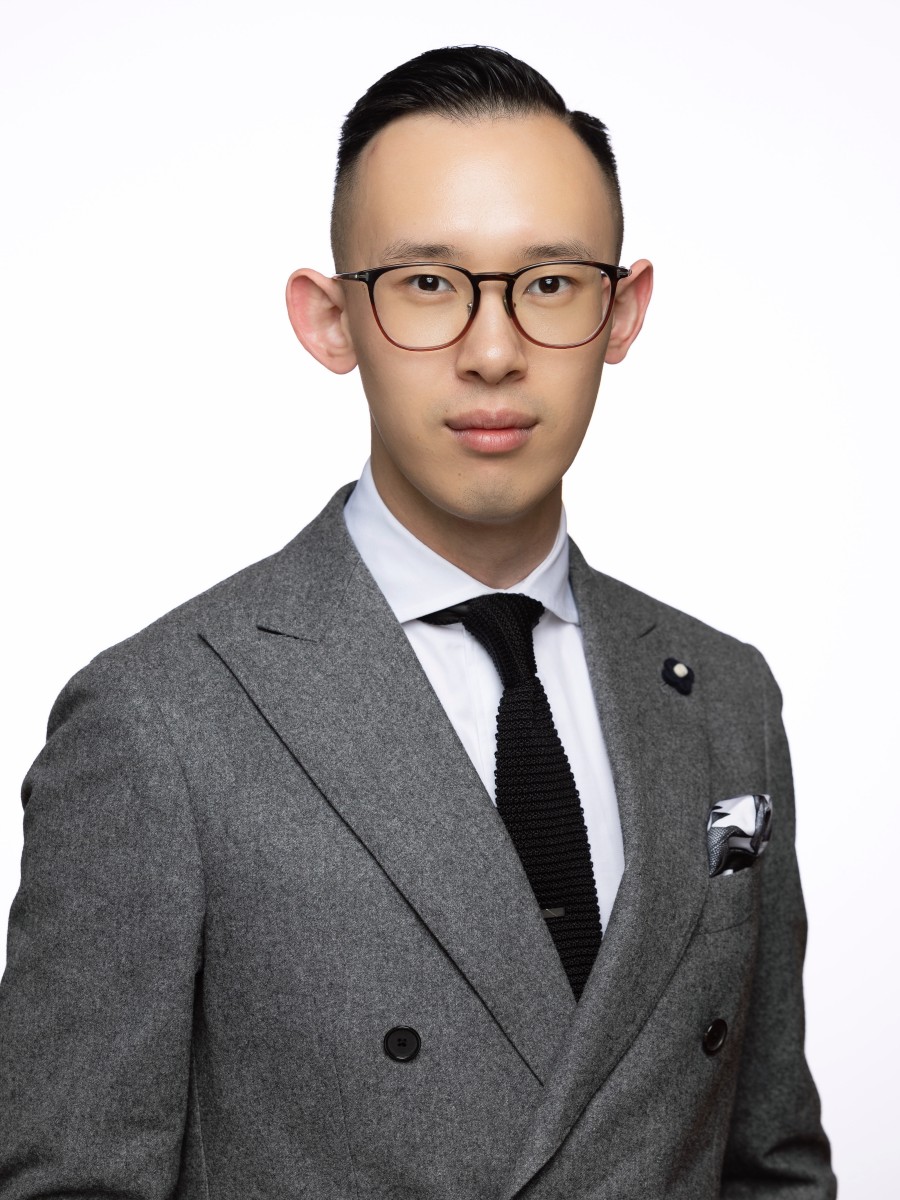
Ziqiao Chen
Associate Director of Philanthropy - Asia
University of Nottingham, U.K.
“I was not meeting the objectives I agreed on with Marcus. [I was thinking], ‘If I cannot go out there and fundraise, how can I advance my career? How can I bring value to the organization?’ For Marcus to have the time to sit down with me weekly and make a to-do list … to reflect and appreciate the small wins … I’m extremely grateful. I appreciate this relationship [and] the fact that he has now moved on to another institution [but] we keep in close touch,” says Chen.
“I’ve got the fiercest regard and pride for Zi. I’d say we’ll have a lifelong relationship,” says Ward, who is now Vice President (Advancement) at Griffith University in Queensland, Australia. Progress in the profession, says Ward, happens when its community members are learning together, an idea underscored by the GTP.
The opportunities Chen was given as a trainee laid the groundwork for him to be hired following the program as Monash’s first dedicated internationally focused fundraiser—part of the university’s strategic plan for venturing into Asia. Since being a trainee, he has presented at the 2022 Asia-Pacific Advancement Conference; won with his team a 2022 Circle of Excellence Best of Asia-Pacific Award for the creation of Monash’s flagship philanthropic program in Asia, the Asia Equity Scholarship; and served on the 2023 APAC planning committee. Chen took a role with the University of Nottingham earlier this year to build the U.K. university’s advancement team in Hong Kong.
Chen credits the rotation he did through different advancement disciplines as a trainee with building his understanding of the profession.
“Having spent time in each of these functions through the program, you know how the shop operates and how one team depends on the other. [The GTP] gave me a bird’s-eye view of how important it is that we work collectively,” says Chen. “The program is about building future leaders for this profession, and I felt that. It has been pivotal in bringing the pieces together. I will forever be grateful for the foundation CASE helped to lay so early in my career, and I will always be ready to give back to the CASE community.”
CASE CONNECTIONS “One of the reasons why I was so committed to the CASE Graduate Trainee Program was that going to the CASE Institutes at Dartmouth [Hanover, New Hampshire, U.S.] early in my higher education fundraising career was my light bulb moment. It was the sheer knowledge, craft, and generous leadership in place—David Jones, Martin Snell, Jim Husson, Karen Osborne—the assurance that it gave me that this was a profession with weight in it. Everything that I got from them at that Institute was my credo—I’ve still got most of my notes sitting on Dropbox.”
Following In a Leader’s Footsteps
As an undergraduate at Texas State University, Jesus Rangel joined the volunteer student group University Ambassadors, sponsored by the U.S. university’s alumni association. He gave campus tours, organized tailgates, and traveled with the university’s president to engage alumni and donors of the university. This experience connected him with the university’s former Advancement Vice President Barbara Breier.
“She took me under her wing,” says Rangel. “I got to go on the road with her to major metropolitan areas across Texas and talk with donors, alumni, and friends of the university.”
Breier’s connection to CASE also led Rangel to apply for the CASE Advancement Internship program. He interned with the alumni association at the University of California, San Francisco, U.S., in the summer of 2017. Around the time of his graduation, CASE was launching the GTP in the U.S. Rangel applied and was hired at the Oregon State University Foundation to work on its annual giving team from 2018 to 2019. Early in the program, when OSU Foundation President and CEO Shawn Scoville asked about his career aspirations, Rangel said, “I want to be in your chair one day. I see myself running an advancement office. I believe in the mission and the vision of higher education.”
Rangel says his career aspirations were inspired by Breier, whom he describes as being a powerhouse in her role.
“Being a first-generation, Hispanic student and a member of the LGBTQIA+ community, there aren’t a lot of folks that look like me in top leadership positions [in advancement]. The next generation of alumni and donors want to work with folks who have similar backgrounds as them. That excited me about this career and [motivated me] to help be that voice for that next generation,” says Rangel.
“The beauty of [the GTP] is that, as a profession, it’s a way to grow our own diversity,” says Scoville. “It’s a way for us to have employees that look more like the students on campus and our alumni. It’s made a tangible difference.”
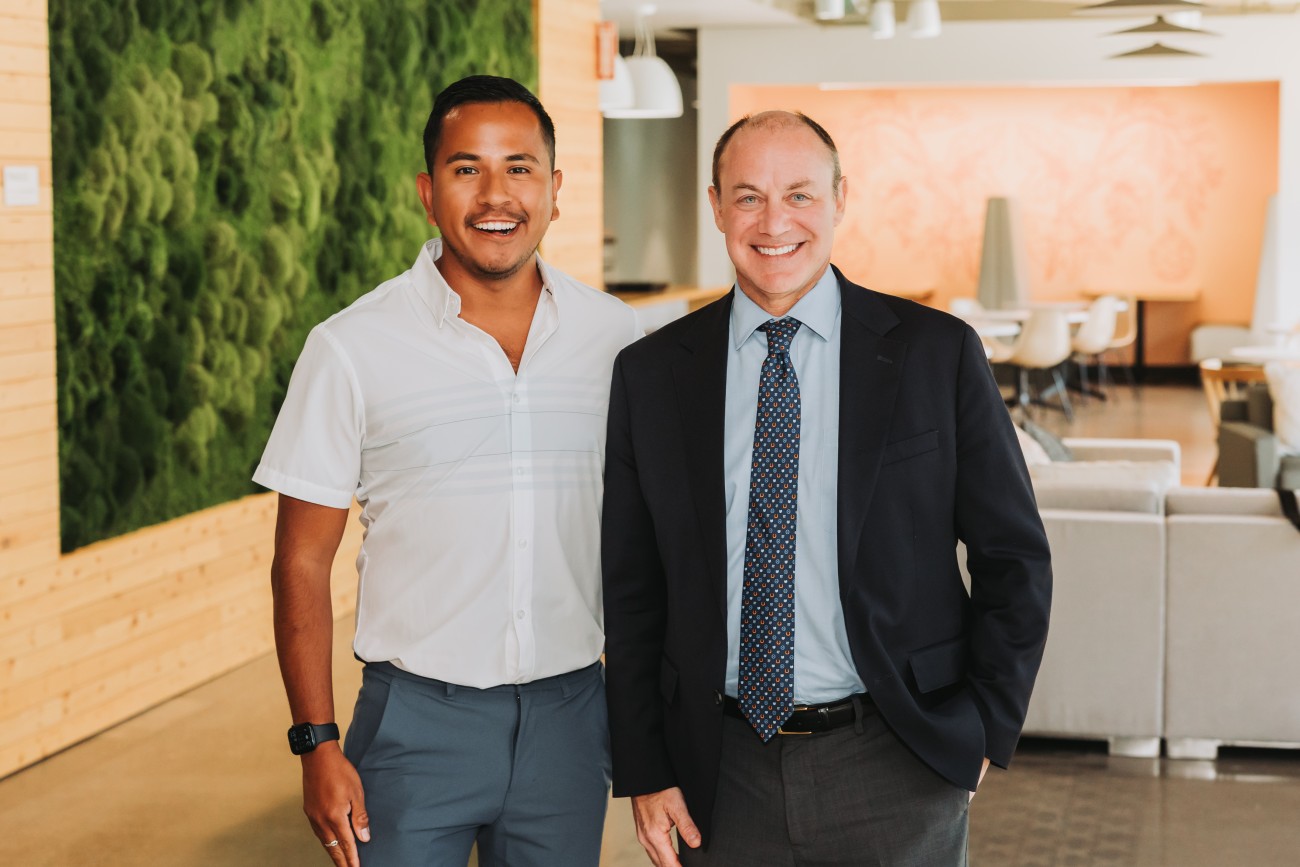
Jesus Rangel (Associate Director for Scholarships and University Initiatives) & Shawn Scoville (President and CEO)
Oregon State University Foundation, U.S.
Scoville has been passionate about shaping Rangel’s career trajectory and has been intentional in opening the door to opportunities for trainees, from working with leadership to attending high-level meetings, presenting to the foundation’s board, or speaking publicly about the foundation.
“It’s fun to have somebody push you like that, who is in a top senior-level position and cares about your successes,” says Rangel. “He has a road map [for my career], too, that’s modeled on the path he took to get where he is. And Dr. Breier and Shawn are still pushing me to complete my graduate degree.”
Rangel was influential in launching OSU’s first annual giving day in 2019, Dam Proud Day, a program that continues. Scoville credits Rangel with bringing a student perspective to the project, drawing on his days at Texas State to successfully recruit ambassadors and get students involved at OSU. Rangel also helped create OSU’s faculty and staff giving program, OSU Loyal. And Rangel’s comfort in front of a microphone and camera inspired the team to use social media and video to advance programs in new ways.
“It’s been five years, and now these programs are part of the fabric of OSU. When he was a trainee, it was his assignment to do research to create what has now become tradition. It’s amazing what a trainee can accomplish so quickly,” says Scoville, who says he’s never viewed mentoring relationships as transactional, but rather friendships through which different perspectives are shared.
Like Scoville, Rangel says he has mentors of varying ages and values having a cohort of people to bounce ideas off. He credits the GTP with helping him form connections, whether through conferences, his graduate trainee cohort, or opportunities to speak to senior leadership, whose 20-plus years of experience he says gave him a leg up on knowing what to expect in the sector.
Following his time as a trainee, Rangel was hired as a Regional Officer for OSU’s alumni association and now is Associate Director for Scholarships and University Initiatives at the foundation. He’s actively involved in CASE’s District VIII activities and is eager to continue to give back to the advancement community.
“It’s great to go to conferences and hear folks say they read an article or saw a video I did, and tell me, ‘You were the reason why I wanted to apply to that program,’” says Rangel.
To students who may want to participate in a program like CASE’s internship or GTP, he says, “An opportunity like this is rare—whether in advancement or a different career—so take full advantage of it.”
Working Toward a More Diverse Profession
Through training and programming, CASE is dedicated to greater inclusion
Throughout its history, CASE has launched a variety of programs to diversify advancement. Much like the Graduate Trainee Program, CASE’s Advancement Internship is designed to increase diversity within the profession while at the same time introducing advancement to a new generation of professionals. The internship program welcomes students who may not have previously considered a career in educational advancement. Since 2016, more than 750 undergraduate students, graduate students, and recent graduates have participated in the program, with 60% of them coming from diverse backgrounds.
Through this career pipeline initiative, CASE directly partners with its member institutions to identify and place talented students of diverse lived experiences and develop their interest in an educational advancement career. Since the program’s beginning, more than 30% of program participants have gone into advancement. And as the program nears its 10th anniversary, several of the early-year interns are moving into mid-career roles.
A milestone for CASE in its quest to be a leader in inclusion and belonging came in 2021 when CASE received a $300,000 grant from the Hewitt Foundation Special Projects Fund to support the launch and growth of the Opportunity and Inclusion Center.
Among many initiatives, the OIC developed the Advancement Inclusion Index, an assessment tool created to aid member organizations in taking inventory of DEIB maturity, and the Executive Advisors initiative to support new advancement leaders.
CASE is also at the forefront of trainings, workshops, and conference sessions on DEIB-related topics, both online and in person, that are widely available to CASE members. CASE@Campus delivers workshops tailored to an institution’s unique needs. A popular content area of late is DEIB training that allows advancement staff to dig deep into the issues with their colleagues.
“The growing interest in how to navigate inclusion and belonging during a complex time is supported through our global trainings and initiatives,” says Rob Henry, CASE Vice President for People, Culture, and Talent. “CASE continues to assist our members in understanding diverse communities and inclusive philanthropy. There is still much work to be done, but the progress and enthusiasm in recent years gives us reason to be hopeful and excited as CASE looks to the future in this anniversary year.”
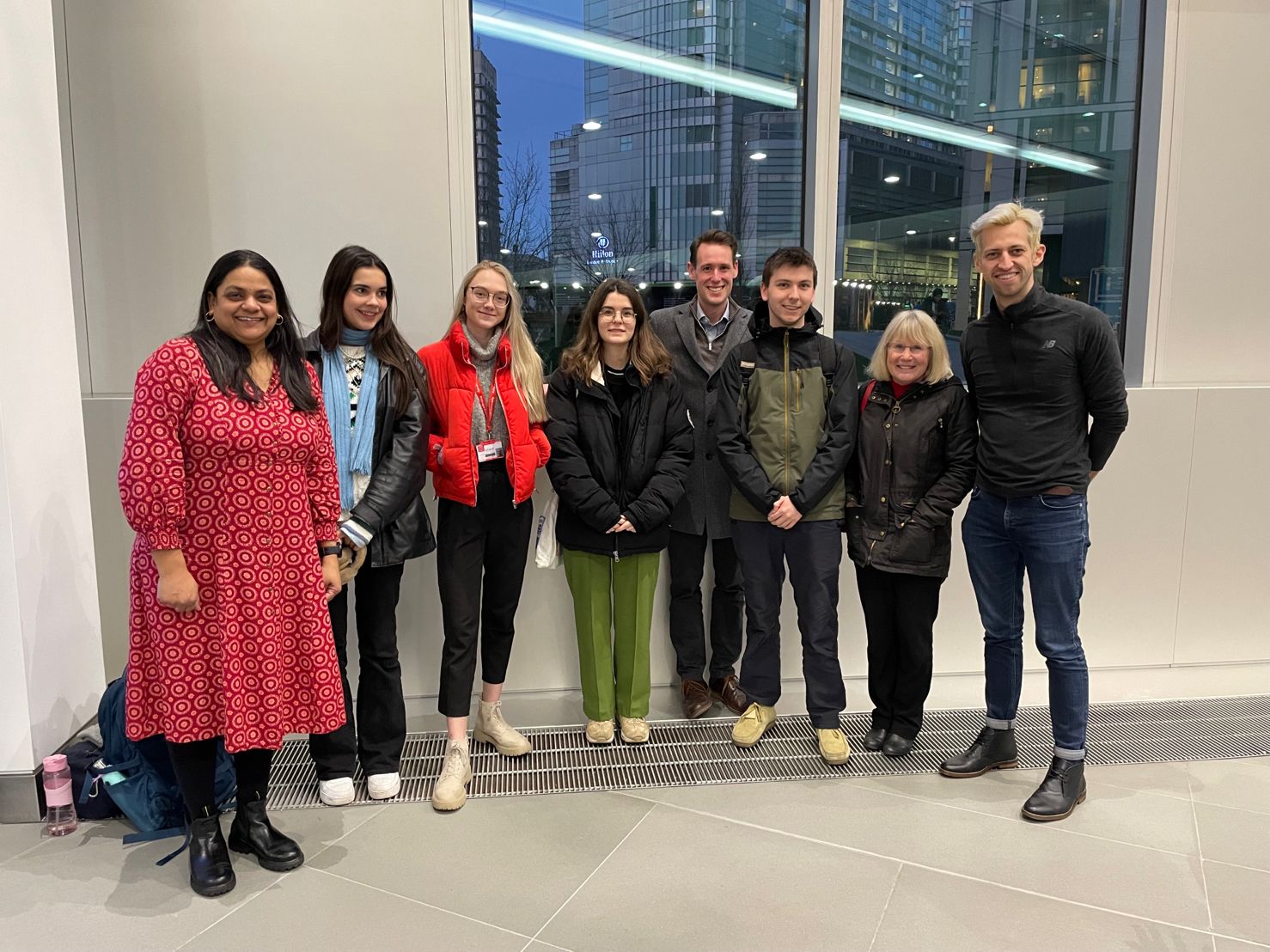
WORKSHOP DAY: Georgia Willmot (third from left) and her graduate trainee cohort attend a CASE workshop day in London.
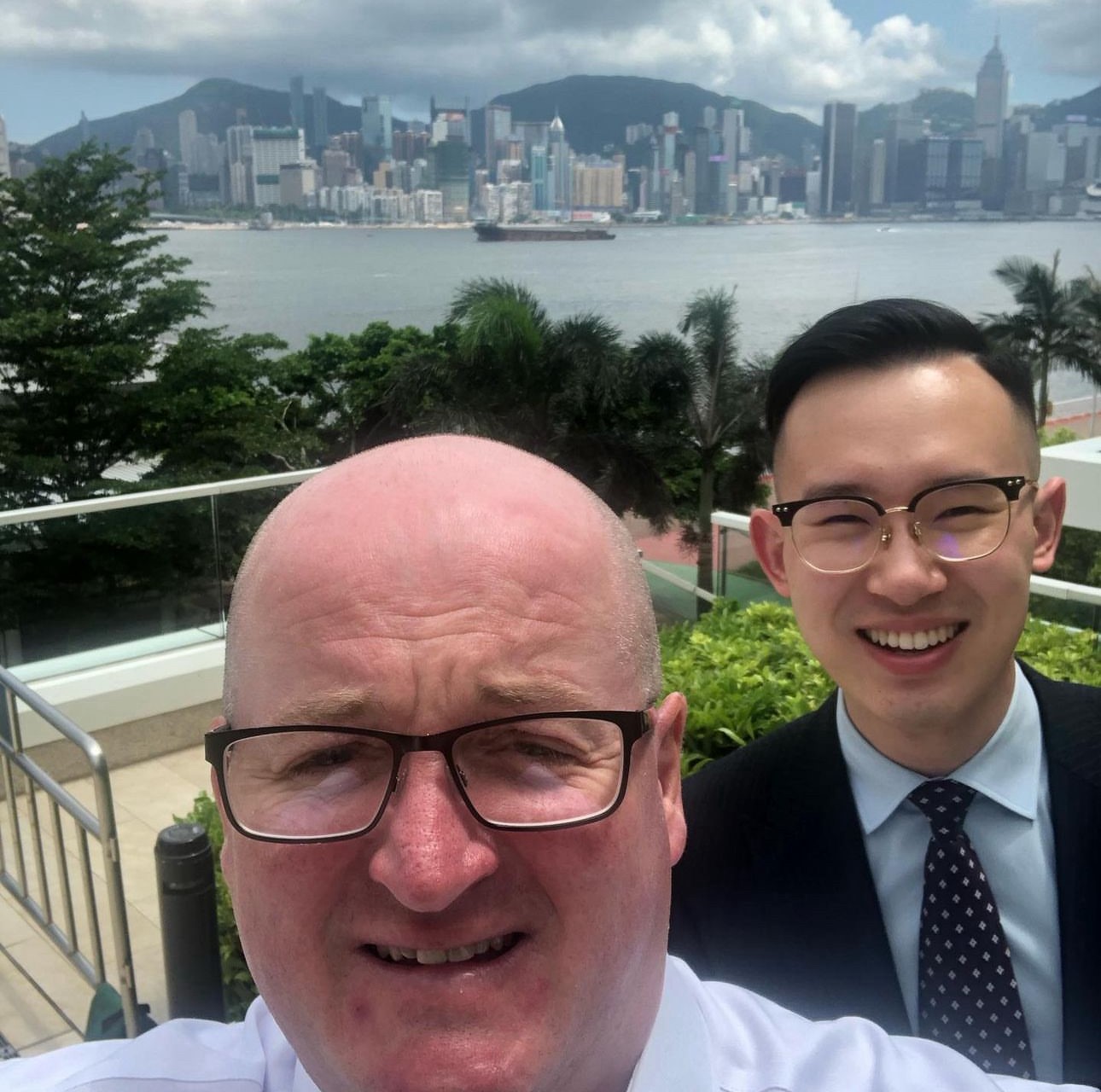
WORK TRIP: Marcus Ward (left) and Ziqiao Chen (right) traveled to Hong Kong in 2019 to meet with Monash University donors and award a scholarship to a future student.
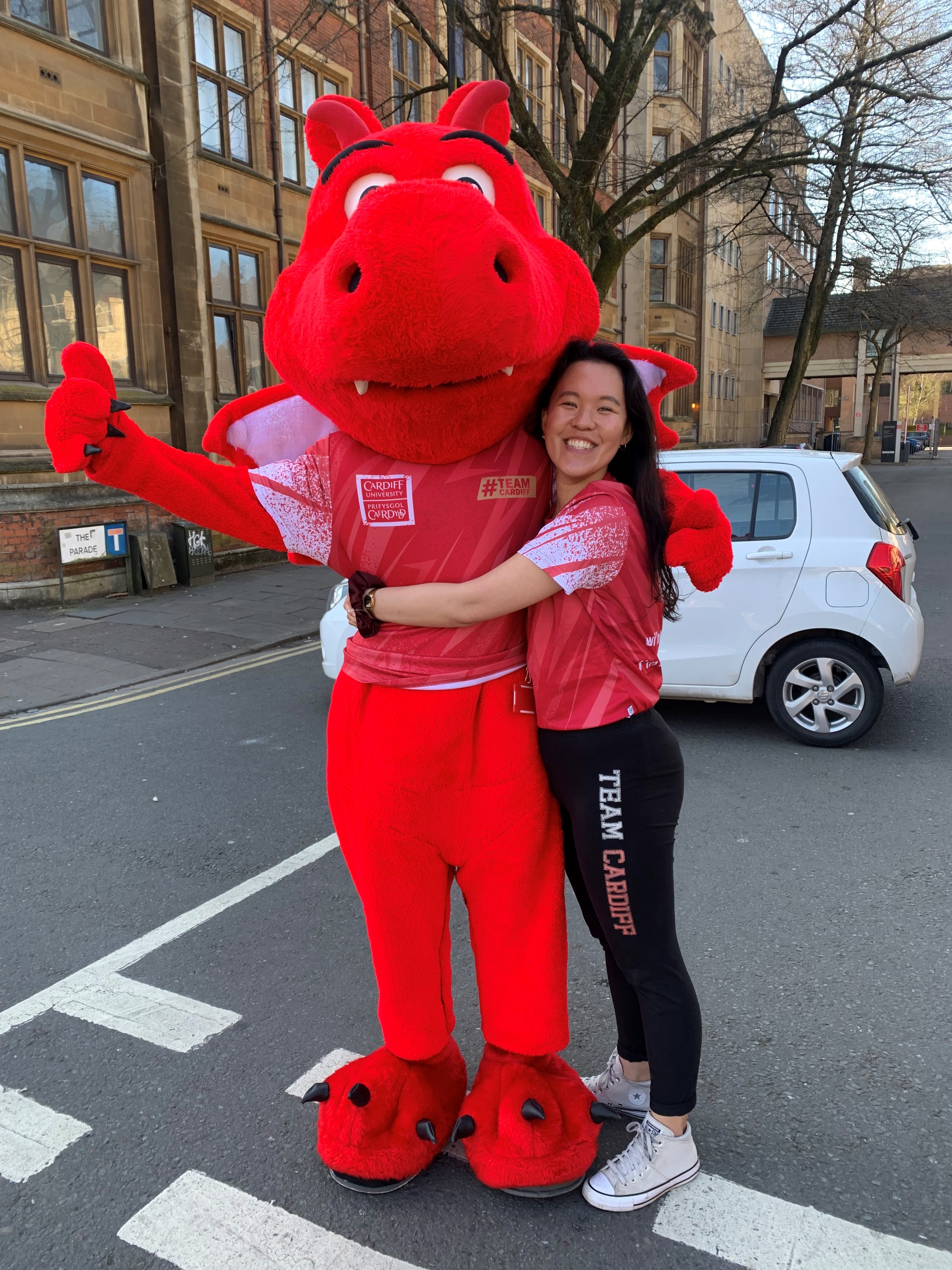
CARDIFF PRIDE: As an undergraduate at Cardiff University, Jackie Yip worked at the student union where she first met the university's donors.
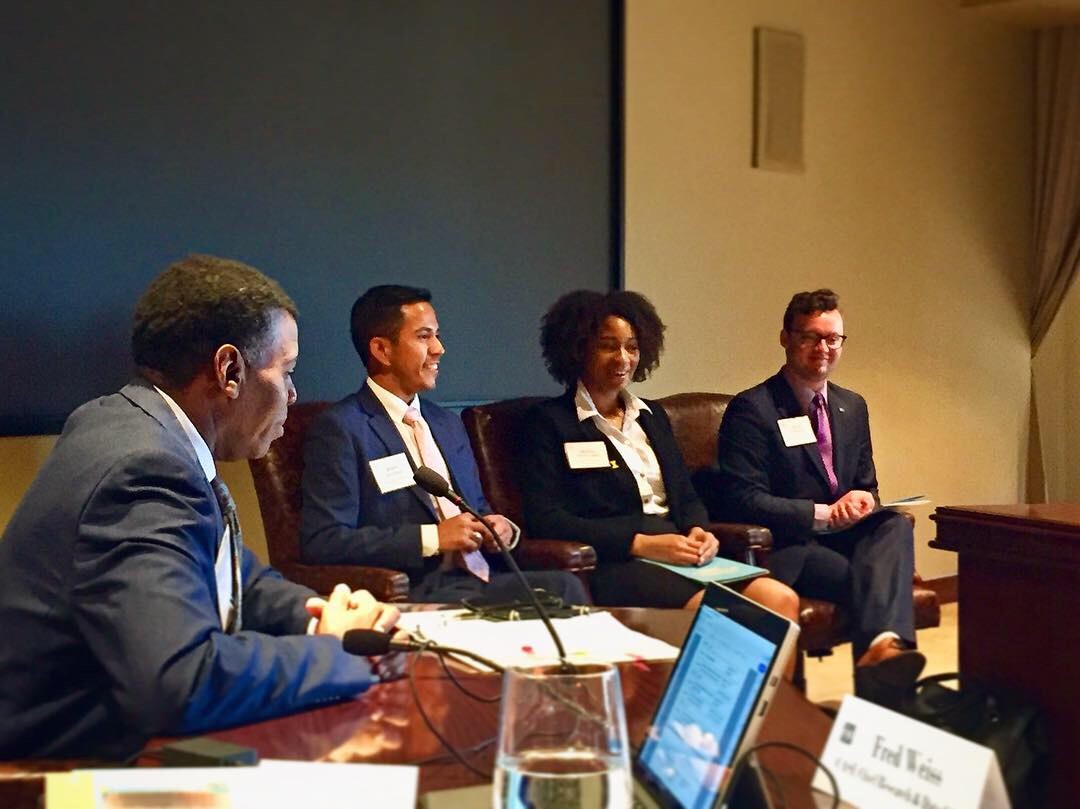
PRESENTING TO THE BOARD: Jesus Rangel (second from left) alongside other graduate trainees shared with the CASE Board of Trustees their experiences in the program during its first year.
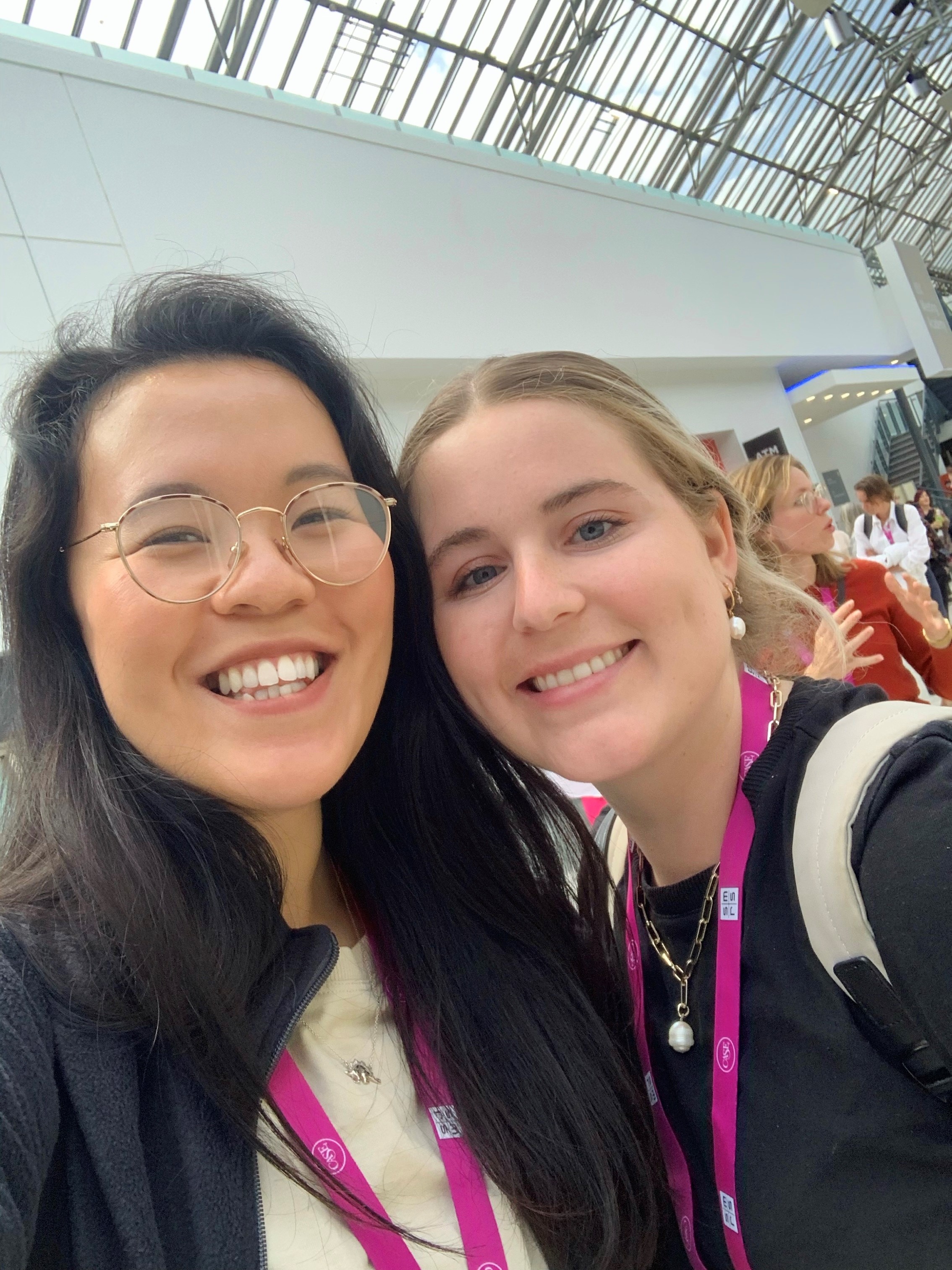
IN-PERSON MEETING: Jackie Yip (left), who was a graduate trainee during the COVID-19 pandemic and completed the program virtually, first met another member of her cohort in person when attending a CASE conference following her time in the program.
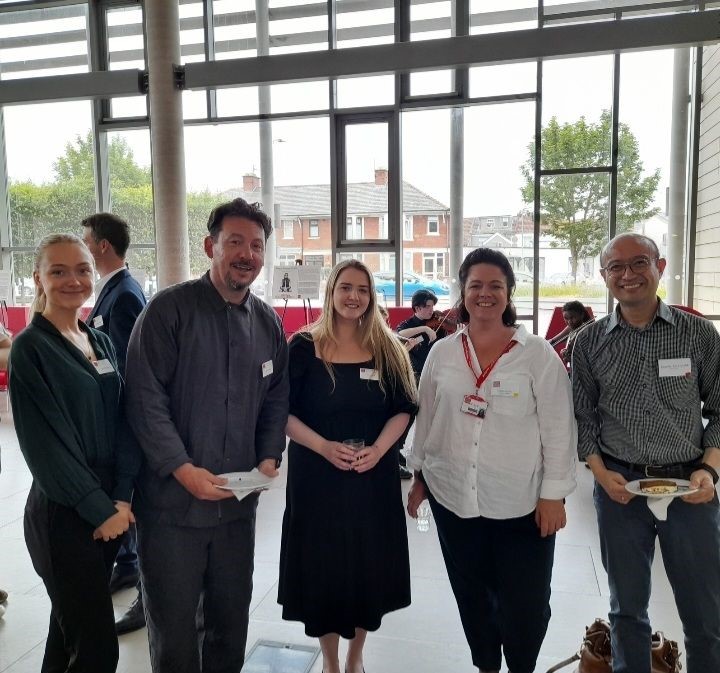
BECAUSE OF YOU: A highlight of Georgia Willmot's (far left) year as a graduate trainee was attending Cardiff University's annual "Because of You" donor and volunteer stewardship event.
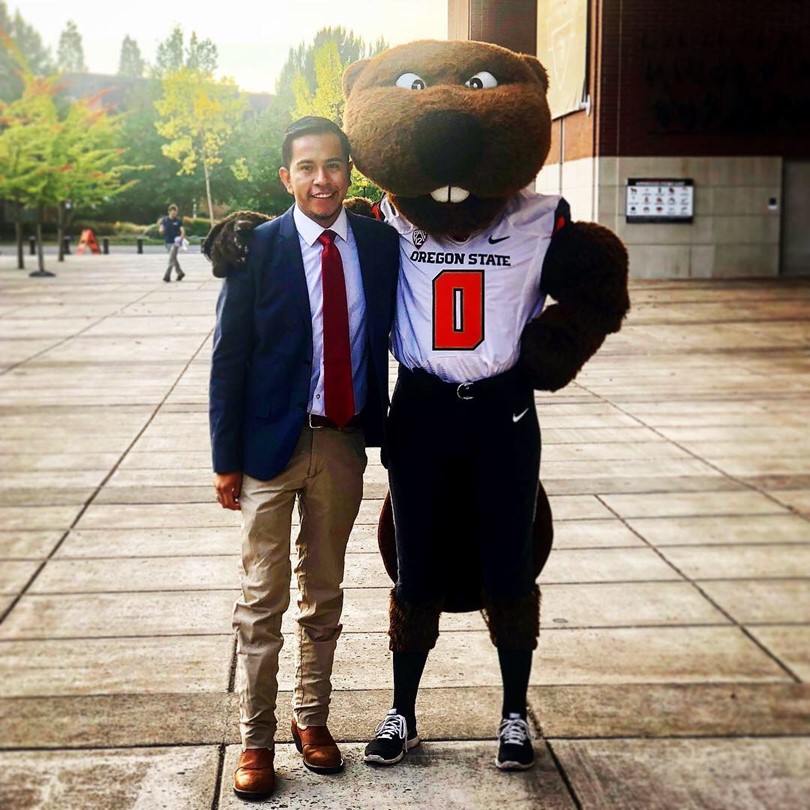
FIRST DAY PHOTO: Jesus Rangel with Oregon University's Benny Beaver on his first day as a graduate trainee at OSU.
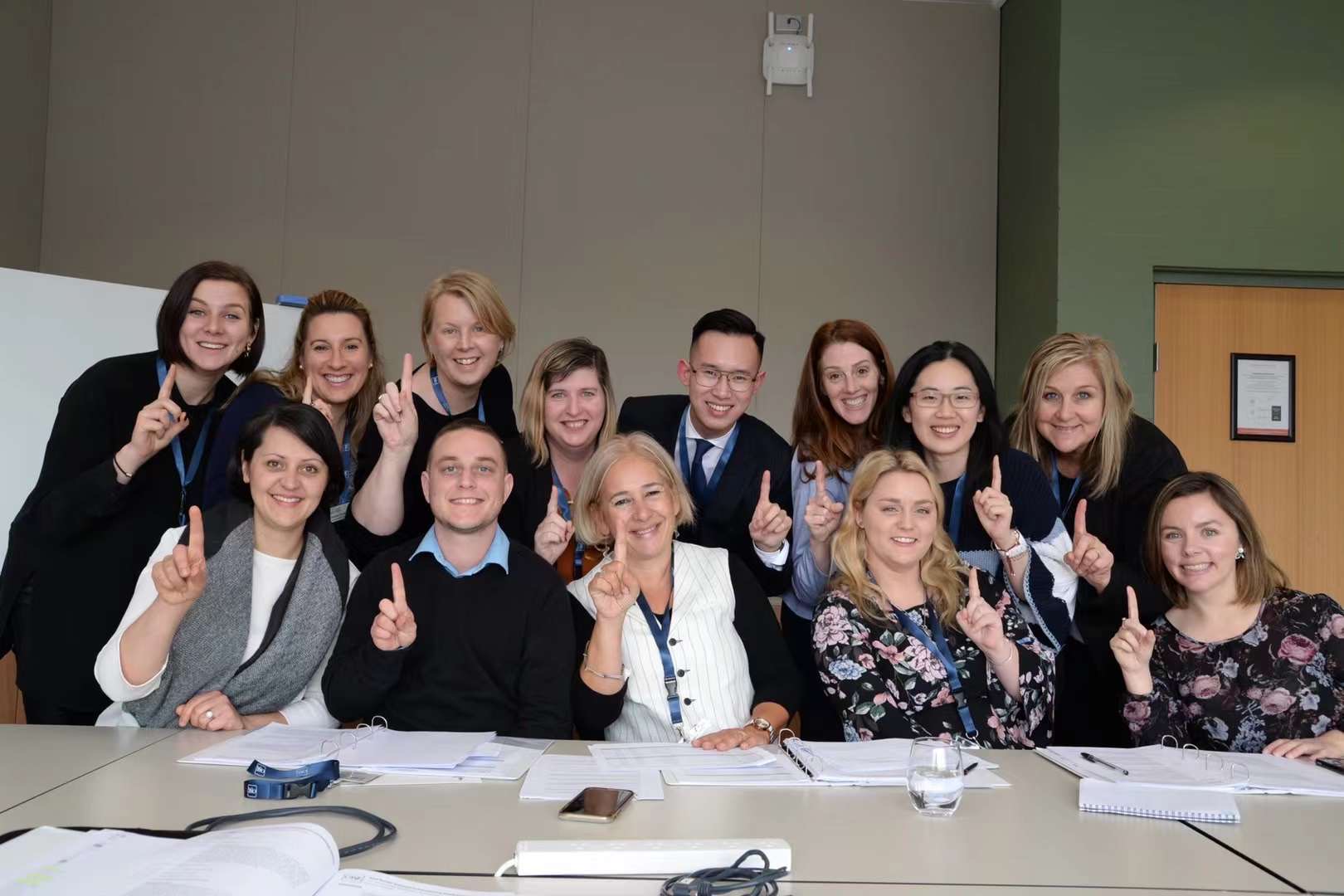
#1 PROGRAM: Ziqiao Chen attended the 2018 CASE Asia-Pacific Institute in Educational Fundraising alongside other graduate trainees.
About the author(s)
Hannah Ratzer is Editorial Specialist at CASE.
Tags
Article appears in:

September - October 2024
Celebrate CASE's 50 anniversary! Explore CASE's history, global journey, and signature activities that serve the profession, like research, training, mentoring, and more.
